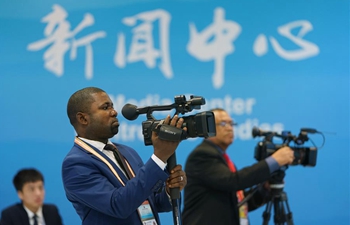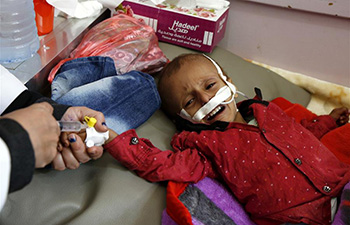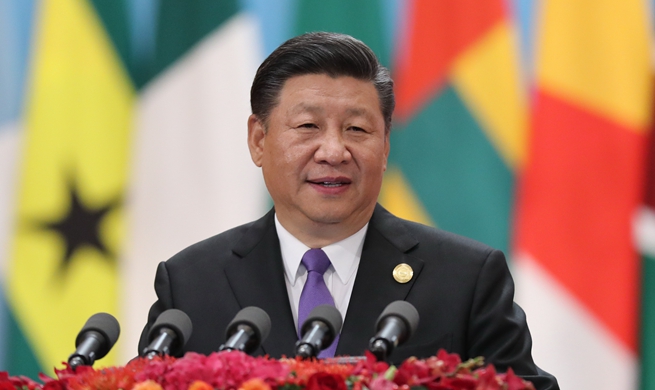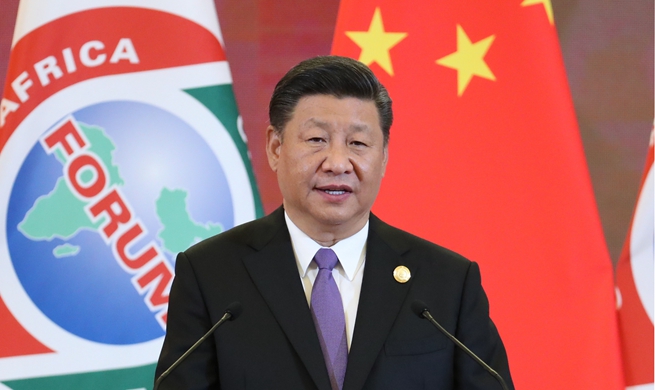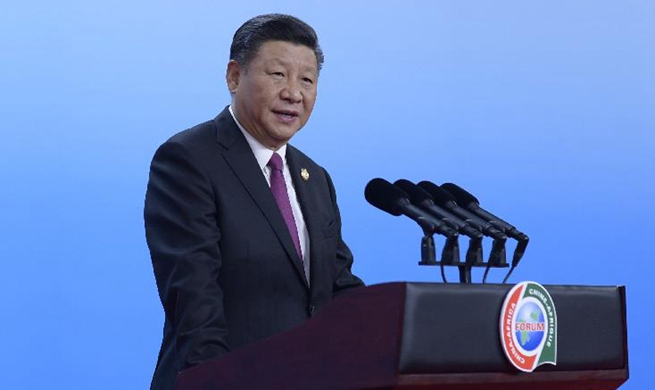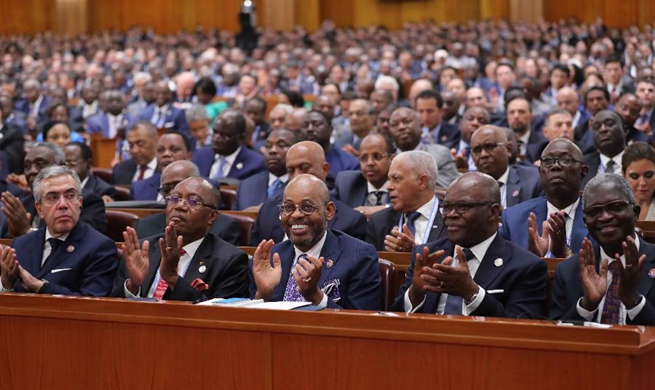BERLIN, Sept. 4 (Xinhua) -- German Defense Minister Ursula von der Leyen (CDU) presented ambitious plans on Tuesday for the modernization of Germany's armed forces (Bundeswehr).
Speaking at a naval training academy in Bremerhaven, von der Leyen confirmed an earlier report by the newspaper "Handelsblatt" that her ministry was seeking to raise the level of German military spending in several steps. "After a long time of shrinking, a time of growth has come again," she said.
The exact details of the plan are confidential but have already been shown to parliamentary delegates in select defense committees. According to "Handelsblatt", the defense ministry is aiming for higher funding of 43 billion (49.7 billion U.S. dollars), or 1.3 percent of gross domestic product (GDP) in 2019, and a further rise to 60 billion euros, or 1.5 percent of GDP, by 2024.
Chancellor Angela Merkel (CDU) recently argued in response to a raft of reports on the poor state of the German armed forces that her government had a responsibility to provide soldiers with a "much broader range of material and equipment" in order to ensure that they could fulfill their international missions.
Defense spending is currently the second largest item (38.5 billion euros) in the German government's 2018 budget but still trails far behind planned labor market and social expenditure (139 billion euros).
However, Finance Minister Olaf Scholz (SPD) has so far rebuffed most calls to offer his coffers further the armed forces, arguing that higher spending does not automatically translate into a better defense strategy. Seeing as Scholz already agreed to slightly better funding than previously planned for the sector back in May, von der Leyen's latest call for an even more far-reaching modernization drive was widely seen on Tuesday as potentially heralding another cabinet conflict within the ruling "grand coalition" government in Berlin.
Aside from disgruntled soldiers, supporters of higher defense spending in Germany have also drawn attention to growing international criticism of the country's long-standing failure to meet the official NATO defense spending target of 2 percent of GDP.
U.S. President Donald Trump in particular has accused Berlin of failing to pull its weight in this context and even went as far as to threaten to revoke his country's security guarantee to Europe.
As a consequence, CDU/CSU defense policy spokesperson Henning Otte urged the government on Tuesday to set aside its internal quarrels and focus on improving the operational readiness of German armed forces. "It is imperative that we provide the urgently needed financial means (to the army)", Otte told press.
Scholz and other SPD politicians had previously complained that the ministry of defense was simply asking for larger and larger sums of taxpayer money without specifying what the funds would be used for. This specific issue appears to have been resolved by von der Leyen's latest plan.
"Handelsblatt" reported that the confidential document includes detailed information on future staffing levels and military procurement, as well as how these capacities would be used to meet the broader NATO target of being able to mobilize 30 battalions, 30 fighter jets and 30 marine units within 30 days.
